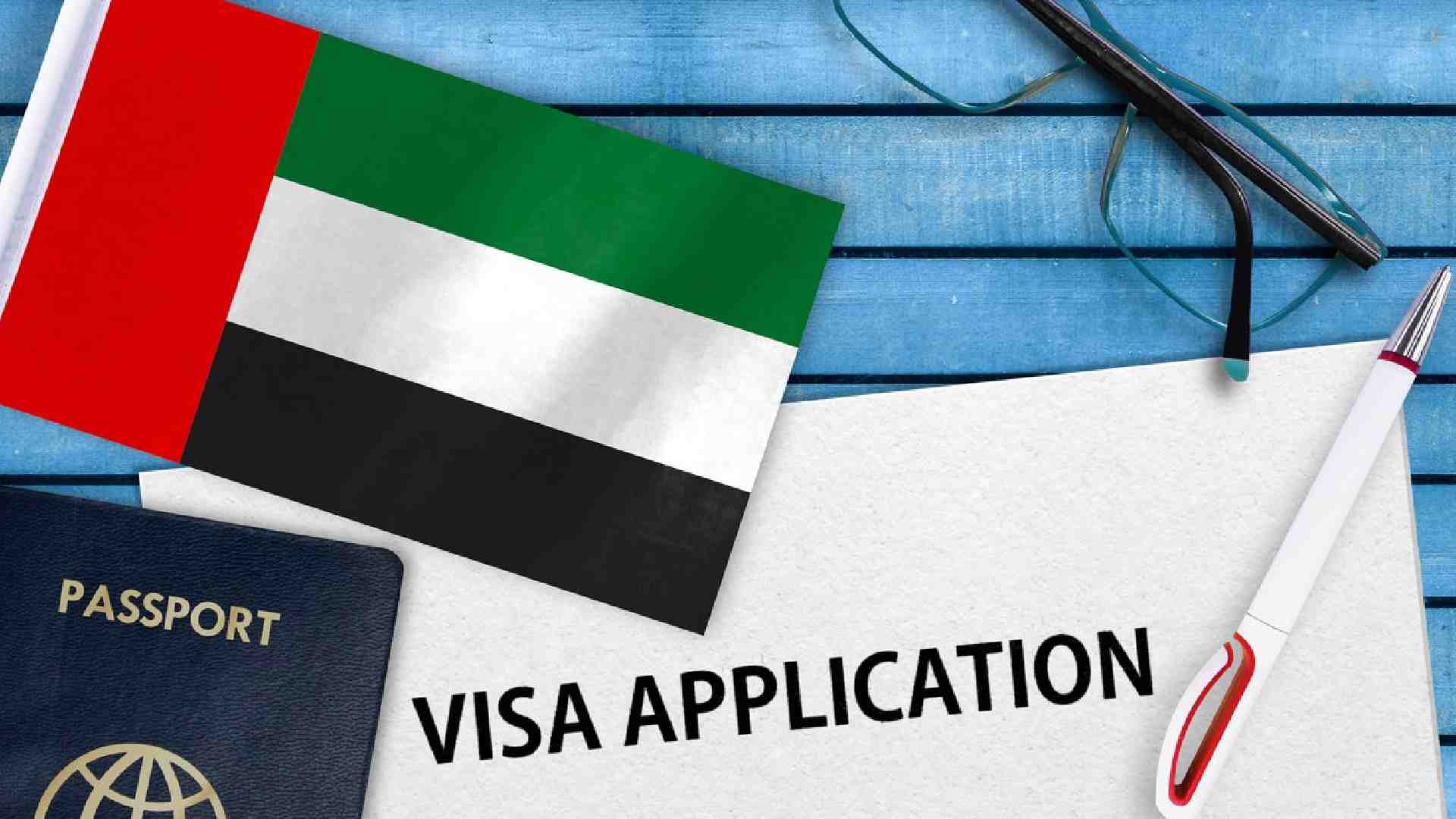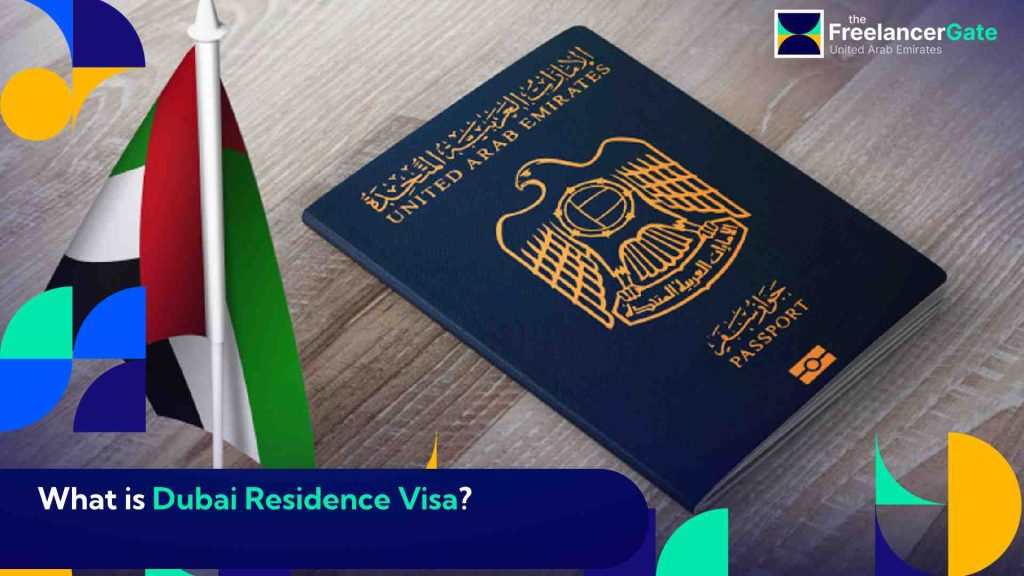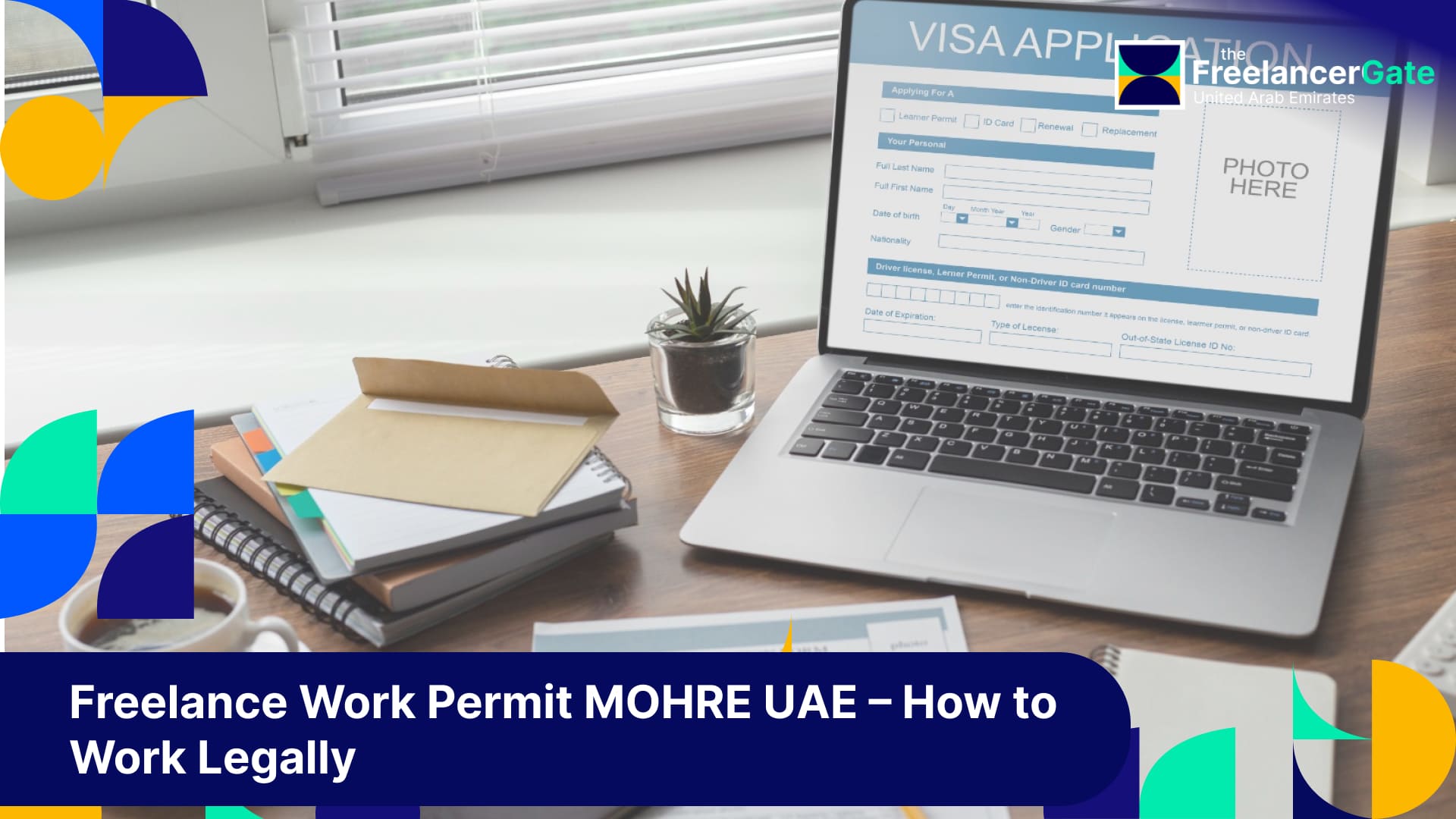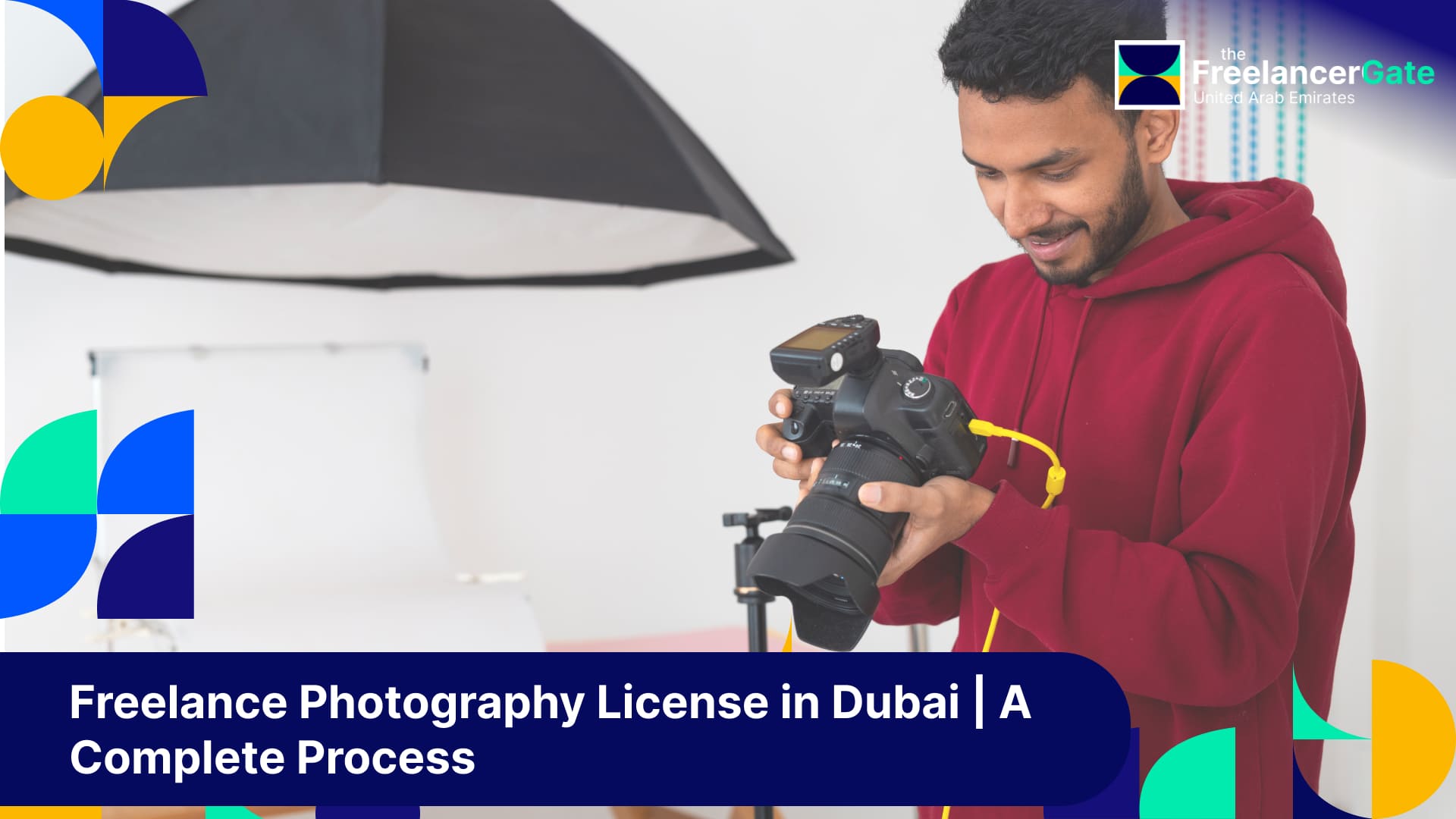Dubai is a lifestyle upgrade. From world-class infrastructure to tax-free income, the perks are clear. But to enjoy these benefits long-term, you need a residence visa in Dubai. This legal document allows you to stay, work, and thrive in the UAE beyond a short visit.
In this guide, we’ll show you everything you need to know, from visa types and application steps to costs, family sponsorships, and renewals. Whether you’re a freelancer, employee, or investor, your journey starts here.
What Is a Residence Visa in Dubai?
A residence visa in Dubai is a government-issued permit that allows foreign nationals to legally reside in the UAE for more than 90 days. It acts as your official ID, unlocking access to essential services like banking, health insurance, mobile connections, and even property rental or ownership.
Without a valid Dubai residence visa, you’re limited to a temporary lifestyle. With it, you become part of the local economy and enjoy all the legal rights and protections of a resident.
Types of Residence Visas in Dubai (2025 Edition)
Dubai offers different residence visa options depending on your purpose of stay. Whether you’re working, running a business, studying, or simply planning to retire in the UAE, there’s a visa type that fits your situation. Here’s a breakdown of the most common Dubai residence visa categories in 2025:
- Employment Visa (Company-Sponsored)
This visa is for individuals who are hired by a UAE-based company. The employer handles most of the process, including applying for the work permit and residence visa.
Key Features:
- Valid for 2 years (mainland) or 3 years (free zone)
- Renewable upon contract renewal
- Tied to your employer (you must change sponsors if you change jobs)
Ideal for full-time professionals working in private or government sectors.
- Investor/Partner Visa
Planning to start or invest in a business in Dubai? This visa is for entrepreneurs or shareholders in mainland or free zone companies.
Benefits:
- Full business ownership (in most free zones)
- Renewable every 2-3 years
- Allows you to sponsor family members
If you’re setting up a company through The Freelancer Gate, this is the visa you’d likely use.
- Freelance Visa (Ideal for Creatives and Digital Nomads)
Freelancers in media, tech, education, or design can apply for a residence visa in Dubai without needing a traditional employer.
What You Get:
- Freelance permit + residence visa
- Freedom to work with multiple clients
- Access to UAE banking, housing, and healthcare services
In 2025, this has become a popular choice for remote workers and solo professionals.
4. Family Visa (Sponsor Your Loved Ones)
Once you’ve secured your residence visa in Dubai, you can sponsor immediate family members, such as your spouse, children under 18, and sometimes parents or adult daughters.
To do this, you’ll need:
- A minimum salary of AED 4,000–6,000/month
- A valid tenancy contract
- Health insurance and medical clearance for dependents
Dubai promotes family unity, and with proper documentation, the process is both affordable and efficient.
5. Student Visa
Students enrolled in UAE-based educational institutions can apply for this visa through their university or college.
Duration:
- Typically valid for 1 year
- Renewable based on continued education.
This visa is gaining traction among international students due to the UAE’s growing education sector.
- Retirement Visa (5-Year Renewable)
For residents aged 55+ who want to retire in the UAE, this long-term option is available.
Requirements Include:
- Savings of AED 1 million or
- Property worth AED 1 million or
- Income of at least AED 20,000 per month
Perfect for expats who’ve lived in the UAE and want to continue enjoying the lifestyle post-retirement.
7. Real Estate Investor Visa
This is for individuals who own property in Dubai valued above AED 750,000.
Note:
- Property must not be mortgaged by more than 50%
- Visa validity ranges from 2 to 10 years.
Popular among foreign investors who want semi-permanent residence without business involvement.
8. Golden Visa (10-Year Long-Term Visa)
One of the most searched visa types in 2025. This prestigious visa is offered to high-net-worth individuals, exceptional talent, and certain professionals.
Eligible Profiles Include:
- Entrepreneurs
- Scientists
- Doctors
- Outstanding students
- Real estate investors (with property worth AED 2 million+)
Benefits:
- No local sponsor required
- Extended family sponsorship
- Flexibility in employment and investment
If you’re aiming for long-term stability in Dubai, this is a top choice.
Summary Table: Types of Residence Visas in Dubai (2025)
| Visa Type | Validity | Ideal For | Sponsor Required |
| Employment Visa | 2–3 Years | Employees | Yes |
| Investor Visa | 2–3 Years | Entrepreneurs | No (Self) |
| Freelance Visa | 1–2 Years | Remote workers/freelancers | No (Self) |
| Family Visa | 1–3 Years | Dependents | Yes |
| Student Visa | 1 Year | Students | Yes (University) |
| Retirement Visa | 5 Years | Retirees | No (Self) |
| Property Visa | 2–10 Years | Property Investors | No (Self) |
| Golden Visa | 10 Years | High-net-worth / Talents | No (Self) |
How to Get a Residence Visa in Dubai – Step-by-Step

Getting your residence visa in Dubai is easier when you know what to expect. Whether you’re applying through employment, freelancing, or business setup, the steps are mostly the same. Here’s a detailed breakdown:
Step 1: Apply for an Entry Permit
The first step is securing an entry permit. This document allows you to legally enter the UAE and start your residence visa process. If you’re outside the country, it will be issued electronically.
Who issues it?
- The General Directorate of Residency and Foreigners Affairs (GDRFA)
- Your free zone authority (if applying through a business or freelance setup)
Required documents typically include:
- Passport copy (valid for 6+ months)
- Passport-size photo
- Application form
- Offer letter or trade license, depending on visa type
Timeframe: Usually issued within 2 to 5 working days.
Step 2: Take a Medical Fitness Test
Once you’re in Dubai, you’ll need to undergo a mandatory medical examination at an approved government health center.
What’s tested?
- Blood test
- Chest X-ray
Why is it important?
The test ensures you’re free from communicable diseases like HIV or tuberculosis. Without passing the medical test, your visa cannot be processed.
Tip: Book your appointment early to avoid delays, especially during peak seasons.
Step 3: Apply for Emirates ID Biometrics
Next, you’ll need to register your biometrics for the Emirates ID at a Federal Authority for Identity, Citizenship, Customs and Ports Security (ICP) center.
This includes:
- Fingerprinting
- Iris scan
- Photograph
The Emirates ID is a legal requirement. It’s your official ID card in the UAE and is linked to your visa, banking, healthcare, and rental services.
Processing time: About 5–7 working days after biometrics.
Step 4: Submit for Visa Stamping (or e-visa issuance)
After completing the medical test and biometrics, your final step is the visa stamping process. In some cases, especially through free zones, the residence visa may be issued digitally without a physical stamp.
What happens here?
- Your passport is submitted to immigration.
- The residence visa is either stamped inside your passport or issued as an electronic visa.
- You officially become a Dubai resident!
Duration: Depends on your visa sponsor, but typically takes 2–4 working days
Required Documents for Residence Visa
Every visa application requires supporting documents. While specifics vary, here are the essentials:
Passport & Photos
Your passport should be valid for at least 6 months. Bring several passport-size photos with a white background.
Proof of Entry or Job
If you’re employed, a job contract or offer letter is needed. Freelancers and investors need a license or trade registration.
Tenancy Contract
Also known as Ejar, it’s proof of where you live.
Health Insurance
Basic health coverage is mandatory. Some free zones offer this as a package.
Medical Report & Emirates ID
Results from your medical fitness test, plus biometric data for your Emirates ID
Residence Visa Costs in Dubai
Budgeting is essential when planning your move. The residence visa cost in Dubai depends on the type of visa, the sponsoring authority, and whether you apply from inside or outside the UAE.
| Visa Type | Cost (AED) | Includes |
| Employment Visa | 4,000 – 7,000 | Visa, medical, Emirates ID |
| Freelance Visa | 7,500 – 12,000 | Permit, visa, workspace (optional) |
| Investor Visa | 10,000+ | Visa + business setup services |
| Family Visa | 3,000 – 5,000 | Sponsorship, visa, Emirates ID |
| Free Zone Package | Varies (budget-friendly) | Visa, office, and Emirates ID support |
Where to Apply for Your Residence Visa
Applying through the right channel is key. You can submit your residence visa application through:
- The General Directorate of Residency and Foreigners Affairs (GDRFA Dubai) for employment or family visas
- A free zone authority like DMCC or Dubai Media City for freelance and investor visas
- The ICP (Federal Authority for Identity, Citizenship, Customs & Port Security) for Emirates ID and follow-ups
- Trusted visa consultants like The Freelancer Gate, who manage the process end-to-end
Each route has its benefits, but professional help can save you time, errors, and unnecessary stress.
How to Renew Your Residence Visa
Your Dubai residence visa comes with an expiration date, usually between one to three years, depending on the type. Timely renewal is important to avoid overstay penalties.
The renewal process involves repeating your medical test, updating your Emirates ID, and submitting a renewal application to the relevant authority. Make sure to start the process at least 30 days before your visa expiry.
Delays can lead to fines and potential bans, so mark your calendar and keep your insurance and housing contracts updated.
Common Mistakes to Avoid During the Process
Many applicants face delays due to small yet critical errors. Avoid the following:
- Submitting expired or blurry documents
- Ignoring health insurance requirements
- Missing Emirates ID biometric appointments
- Not checking the expiry date of the entry permit.
- Waiting too long to start the renewal process
A proactive approach can make all the difference between a smooth transition and costly delays.
The Freelancer Gate: Your Trusted Visa Partner
Navigating the visa process can be overwhelming. That’s why The Freelancer Gate is here: to take the stress off your plate.
Our team specializes in helping freelancers, remote workers, and entrepreneurs secure their residence visa Dubai with speed and accuracy. We handle everything from document preparation and submission to Emirates ID appointments and renewals.
With transparent pricing, expert guidance, and personalized support, we make UAE residency not just possible but effortless.
Frequently Asked Questions
Q1: Can I switch from employment to a freelance visa?
Yes. Once your employment visa is cancelled, you can apply for a freelance residence visa independently.
Q2: Do I need health insurance for a residence visa?
Absolutely. It’s mandatory under UAE law and required at the time of application and renewal.
Q3: How do I check the status of my visa?
Use the official ICP portal or contact your visa consultant for real-time updates.
Q4: Can I apply for a residence visa while in Dubai on a tourist visa?
Yes, but you’ll need to change your status and obtain an entry permit before proceeding.
Q5: How Long Does It Take to Get a Dubai Residence Visa?
It usually takes 7 to 15 business days, including medical tests, Emirates ID, and visa stamping. Express options are available through some free zones and consultants for faster processing. Submit complete documents and stay responsive to avoid delays.
Ready to Secure Your UAE Residency?
A residence visa in Dubai is your gateway to a secure, successful life in the UAE. With the right guidance, the process is faster, easier, and fully compliant with UAE laws.
Let The Freelancer Gate walk you through it. From selecting the right visa to handling paperwork and renewals, we’re your one-stop solution.
Get in touch today and start your Dubai journey with confidence.






